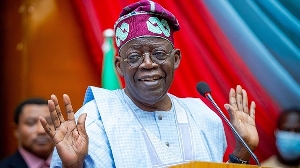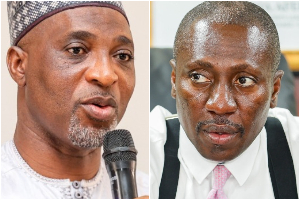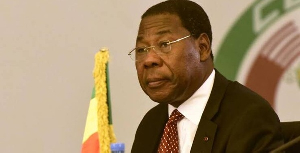Nigeria’s debt to the World Bank has increased by $1.07 billion under President Bola Tinubu’s administration.
According to an analysis of data from the Debt Management Office (DMO), the debt rose from $14.51 billion at the end of the second quarter of 2023 to $15.59 billion by the end of the first quarter of 2024, marking a 7% increase.
The International Development Association (IDA), one of the arms of the World Bank Group, experienced the most substantial increase in its lending to Nigeria.
The IDA’s loans to Nigeria grew from $14.03 billion in Q2 2023 to $15.10 billion in Q1 2024, a rise of approximately $1.08 billion.
On the other hand, the International Bank for Reconstruction and Development (IBRD) saw a slight decrease in its loans to Nigeria, from $485.75 million to $484.81 million over the same period.
Debt service costs to World Bank gulp $1.06 billion
While the increase in borrowing is notable, Nigeria’s debt servicing costs have also been significant, almost matching the amount borrowed.
Over the four quarters from Q2 2023 to Q1 2024 under Tinubu’s administration, Nigeria has spent a total of $1.06 billion on debt servicing for its World Bank loans.
The International Development Association (IDA) has been a significant source of loans for Nigeria, and the debt servicing costs for these loans have been substantial. Over the four quarters from Q2 2023 to Q1 2024, Nigeria spent a total of $629.4 million on servicing its debt to the IDA.
In addition to the IDA, Nigeria also incurred debt servicing costs to the International Bank for Reconstruction and Development (IBRD), totaling $432.24 million over the same period.
The total debt servicing cost for both IDA and IBRD amounts to $1.06 billion, which is almost equivalent to the $1.07 billion borrowed in the same timeframe.
What you should know
Nairametrics earlier reported that Nigeria secured a total of $4.95 billion in loans from the World Bank under the administration of President Bola Tinubu amid concerns over the country’s rising external debt servicing costs.
Not less than six loan projects have been approved and they include loans for power ($750 million), women empowerment ($500 million), girl’s education ($700 million), renewable energy ($750 million), economic stabilization reforms ($1.5 billion) and resource mobilization reforms ($750 million), according to findings by Nairametrics.
Also, the World Bank may approve four loan projects totalling $2 billion for Nigeria this year.
These four projects are currently undergoing concept review, an appraisal stage that will lead to further negotiation and approval between Nigeria, which is the borrower and often represented by the Minister of Finance and the World Bank.
If approved, Nigeria will have secured a total of $4.25 billion in loans from the bank this year alone and a cumulative $6.95 billion under the administration of President Bola Tinubu.
Business News of Sunday, 7 July 2024
Source: nairametrics.com













